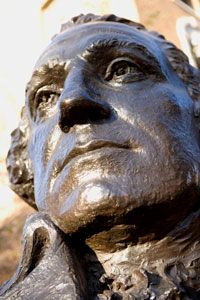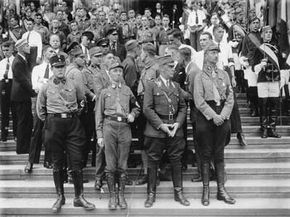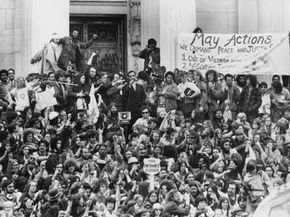Not long ago, American schoolchildren learned a quaint tale in history class about the nation's first president. It had to do with a precocious George Washington cutting down a cherry tree against his parents' wishes. When confronted by his angry father, Washington had to decide whether to lie and avoid punishment or own up to the offense. As the tale goes, young Washington replied that he couldn't tell a lie and confessed to axing the tree.
Today, we know that Washington did no such thing. When archaeologists discovered the site of Washington's boyhood home in 2008, they found no cherry trees on the landscape. The story was fabricated by early Washington biographer Mason Locke Weems to bolster the first president's heroic image. Omitting the cherry tree story from curriculum had no significant impact on our collective memory of George Washington and made him no less important to shaping the early history of the United States.
Advertisement
That's a simple example of revisionist history. Scholars find inconsistencies or outright fallacies in historical narratives and make the necessary edits, or they examine the reasoning behind historical facts. Was George Washington truly heroic? How did his character mold the United States in its infancy?
Retracing recorded history can be more like navigating a minefield than pleasantly strolling down memory lane. That's because the past isn't always as simple as the initial version of the story would have you believe. Revisionist history is complicated by the fact that people's identities are strongly linked to their histories; challenging long-held claims about past events draws criticism and controversy. The field itself isn't cut and dry -- revisionist historians work from angles. Often, revisionist history is from one of three major perspectives:
- Social or theoretical perspective to re-examine the past through different lenses
- Fact-checking perspective to correct the record of past events
- Negative perspective that views revisionism as an intentional effort to falsify or skew past events for specific motives
Since the days of ancient Greek and Roman scholars, such as Plutarch and Tacitus, people have been editing recorded history. But modern historical revisionism originated in the 20th century, after the first global military conflict that shocked the world: World War I. The aftermath of the war would alter the way scholars and laymen alike viewed historical preservation.
Advertisement






